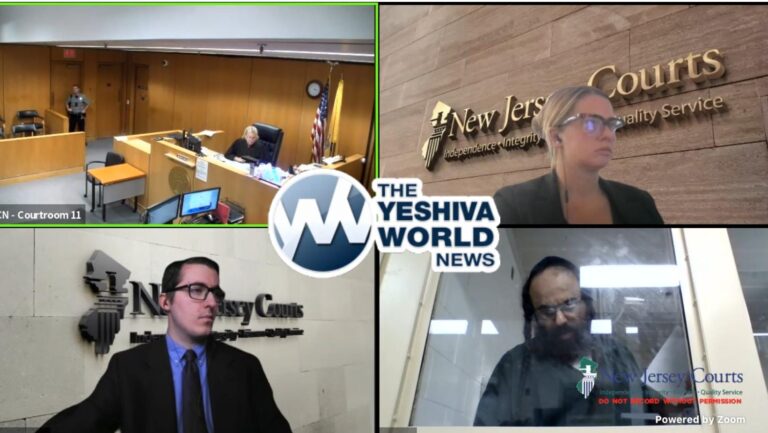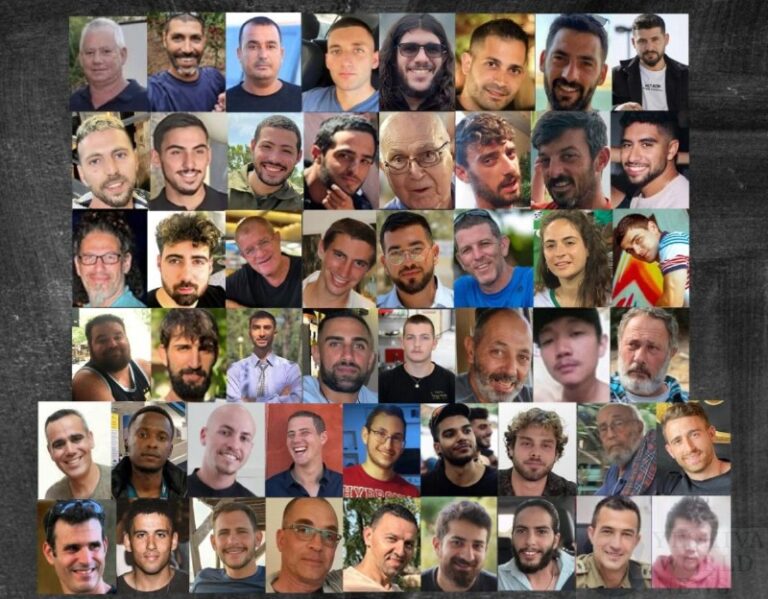Nonprofit organizations work tirelessly to create positive change, often with limited resources. Managing donor relationships, streamlining fundraising, and measuring impact can be daunting without the right tools. SFDC Salesforce provides nonprofits with a robust suite of tools designed to simplify operations and amplify their impact.
This article explores how Salesforce supports nonprofits and why it has become the platform of choice for organizations worldwide.
What is SFDC in Salesforce?
SFDC, short for SalesForceDotCom, refers to Salesforce’s powerful cloud-based CRM platform. Initially created to revolutionize sales and customer relationship management, Salesforce has expanded its offerings to cater to various industries, including nonprofits.
Nonprofits face unique challenges—limited funding, manual processes, and difficulties in tracking impact. SFDC Salesforce addresses these obstacles by providing tools that improve efficiency, enhance engagement, and offer actionable insights.
Key Salesforce Tools for Nonprofit Success
Salesforce provides an array of tools specifically designed to help nonprofits thrive. These features empower organizations to manage their operations more effectively while focusing on their mission.
Salesforce Nonprofit Cloud
At the heart of Salesforce for nonprofits is the Nonprofit Cloud, a suite of tools tailored to address the sector’s needs. It offers:
-
Fundraising and grant management tools.
-
Constituent relationship management (CRM) for tracking donor engagement.
-
Campaign management features to optimize outreach efforts.
The Nonprofit Cloud ensures that organizations can focus on their cause rather than their back-office tasks.
AppExchange: Extending Functionality
Salesforce’s AppExchange offers numerous opportunities for different businesses, including nonprofits. These apps expand Salesforce’s capabilities, allowing organizations to customize their tools for tasks like fundraising, volunteer management, and impact measurement. By leveraging AppExchange, nonprofits can streamline workflows and enhance operational efficiency without building custom solutions from scratch. There are a dime and a dozen of apps for that. For instance, these are AC Events Enterprise and AC MemberSmart.
A great real-life example of how AppExchange supports nonprofits is the collaboration between UNICEF and Advanced Communities using AC Events Enterprise. UNICEF needed to organize events rapidly to support Ukrainian children, including virtual and hybrid events. By integrating AC Events Enterprise through Salesforce, they were able to streamline event registrations, manage marketing campaigns, and track engagement effectively.
This powerful tool allowed UNICEF to address logistical challenges, ensuring a smooth process for both attendees and organizers. The app’s features enabled real-time reporting and analytics, helping UNICEF measure the success and impact of their events.
Within a year, the organization achieved significant milestones, demonstrating how AppExchange apps like AC Events Enterprise can make event management more efficient and impactful for nonprofits operating under challenging conditions.
Community and Collaboration Tools
Salesforce’s collaboration tools foster stronger volunteer and team engagement. With Experience Cloud, nonprofits can create communities where volunteers share updates, resources, and feedback. This feature has been instrumental in improving coordination during large-scale campaigns or disaster relief efforts.
AI Tools for Impact Measurement
AI-powered tools like Salesforce’s Einstein Analytics help nonprofits measure their impact effectively. Predictive analytics enable organizations to identify high-potential donors, optimize campaigns, and allocate resources efficiently.
Agentforce for Nonprofits
Agentforce in Salesforce is a tool that allows nonprofits and businesses in other industries to create dedicated apps to automate and perform specific tasks, improving operational efficiency. These apps can be custom-built to address unique organizational needs, providing a dynamic and scalable solution to tackle challenges. Key capabilities of Agentforce Agents include automating repetitive tasks, streamlining event management, integrating data from multiple sources, coordinating volunteers based on skills, availability, or preferences, and tracking grant application outcomes.
Agentforce agents can save staff time by sending personalized thank-you emails to donors, streamlining event coordination by tracking attendee registrations, scheduling reminders, generating post-event reports, and providing actionable insights. They can also integrate data from multiple sources, offering a centralized view of organizational performance.
Agents can match volunteers to tasks based on their skills, availability, or preferences, ensuring efficient deployment and improved satisfaction. They can also automate notifications and updates, keeping volunteers informed and engaged.
By leveraging Agentforce, nonprofits gain access to a flexible toolkit that simplifies day-to-day operations and enhances their ability to focus on mission-critical work. These intelligent apps empower teams to achieve more with fewer resources, driving meaningful impact in the communities they serve.
The Benefits of Using Salesforce for Nonprofits
Salesforce is a powerful tool for nonprofits thanks to its flexibility and power. Its cloud-based nature allows for seamless operations, regardless of team size. Its customizable dashboards and reports enable real-time progress tracking, enabling data-driven decision-making. Salesforce’s robust security measures protect donor and operational data, fostering trust with stakeholders. Centralizing operations frees up resources, allowing teams to focus on mission-aligned work.
Enhanced Donor Management
Salesforce’s CRM enables nonprofits to track donor interactions, identify giving patterns, and tailor engagement strategies. For example, nonprofits can send personalized thank-you messages or target specific donor groups with relevant campaigns.
Streamlined Fundraising Campaigns
Salesforce automates various aspects of fundraising, from event planning to online donation management. Nonprofits can set up recurring donations, track campaign performance, and manage sponsorships effortlessly.
Improved Collaboration and Communication
Cloud-based tools allow global teams to collaborate in real-time, breaking down geographical barriers. Nonprofits can share updates, documents, and data across teams using Salesforce’s communication features.
Real-Time Reporting and Impact Analysis
With Salesforce’s robust analytics, nonprofits gain insights into campaign performance and overall impact. These insights inform decision-making, helping organizations maximize their effectiveness.
How Nonprofits Can Maximize Salesforce for Success
To unlock Salesforce’s full potential, nonprofits must adopt strategies that ensure seamless implementation and utilization.
Getting Started with Trailhead
Salesforce’s Trailhead platform is a valuable tool for nonprofits looking to leverage Salesforce’s full potential. It offers interactive learning paths, covering various aspects from CRM navigation to complex automation and data analysis techniques. Trailhead not only provides a learning platform but also a gateway to mastering tools like Nonprofit Cloud and Experience Cloud, enabling nonprofit staff to apply these technologies to real-world challenges.
Additionally, Trailblazer Communities connect learners to a broader community of nonprofit professionals and Salesforce experts, with such groups as Nonprofit and Education MindShare, Salesforce.org Experience Cloud, and Nonprofit Hub.
These communities foster collaboration and empower nonprofits to leverage collective knowledge for innovative problem-solving. Trailblazer and Trailheads also emphasize flexibility in learning, allowing staff to progress through modules at their own pace, and earning badges and certifications.
Partnering with Certified Salesforce Consultants
Implementing Salesforce effectively can be a game-changer for nonprofits but navigating its vast ecosystem requires expertise. That’s where certified Salesforce consultants come in. These professionals bring in-depth knowledge of Salesforce tools and best practices, helping nonprofits tailor the platform to their needs.
For example, Advanced Communities can help nonprofits automate donor outreach, streamline event planning on Salesforce Experience Cloud, or set up advanced analytics for impact reporting. By partnering with experts, organizations not only save time but also avoid potential pitfalls, ensuring they unlock the full potential of Salesforce to advance their mission.
With the right consultant, nonprofits can focus on what they do best—making a difference—while leaving the technical complexities to the experts.
Automating Nonprofit Operations
Automation has the potential to transform nonprofit operations by streamlining processes, saving time, and allowing staff to focus on mission-critical activities. With Salesforce, nonprofits can automate numerous tasks to improve efficiency and impact.
-
Donor Outreach: Salesforce’s automation tools can send personalized thank-you emails, monthly updates, or donation anniversary reminders without manual effort. This ensures timely communication with donors, strengthening relationships and improving donor retention rates.
-
Event Management: Automating event-related tasks like registration, ticketing, attendee tracking, and post-event surveys simplifies planning and execution. For example, workflows can automatically confirm registrations, send reminders to attendees, and even generate attendee analytics post-event.
-
Impact Reporting: Nonprofits often need to measure the success of programs and initiatives. Salesforce’s AI and analytics tools can automatically generate comprehensive impact reports, integrating data from various sources to present meaningful insights with minimal manual input.
-
Volunteer Coordination: Automation can assign tasks to volunteers based on their skills and availability, send reminders for upcoming commitments, and track hours worked. This ensures optimal volunteer engagement and reduces administrative overhead.
-
Grant Management: Salesforce workflows can track grant application deadlines, automate follow-up communications with funders, and maintain a record of outcomes. This helps nonprofits stay on top of opportunities and streamline the often-complex grant management process.
-
Campaign Management: Marketing automation tools within Salesforce can segment audiences, schedule social media posts, and send targeted campaign emails. Nonprofits can maintain engagement with supporters while minimizing the effort involved in campaign coordination.
Through Salesforce, automation becomes a strategic ally for nonprofits, enabling them to work smarter and dedicate more energy to achieving their missions.
Building Capacity with Salesforce Certifications
Encouraging team members to pursue Salesforce certifications enhances internal capacity. Certified staff can manage the platform more effectively, reducing reliance on external consultants over time.
Real-World Success Stories
Salesforce has empowered nonprofits across various sectors to enhance their operations, build stronger relationships, and maximize their impact. Here are more detailed examples of how nonprofits have utilized Salesforce to achieve remarkable results.
United Way
United Way, a leading nonprofit focused on improving lives and building stronger communities, was struggling with decentralized donor data, making it challenging to engage donors consistently. Salesforce transformed its operations by centralizing donor information into a unified CRM.
With Salesforce Nonprofit Cloud, United Way tracked donor interactions, managed recurring donations, and analyzed giving trends. The platform’s analytics features allowed them to identify key donor segments and design tailored campaigns.
By automating routine donor outreach tasks like thank-you emails and updates, the organization saved hundreds of hours annually. These changes led to a 20% increase in donor retention and a significant rise in large-scale contributions from corporate partners identified through Salesforce’s predictive analytics tools.
Red Cross
The Red Cross operates on the frontlines of disaster response, requiring swift mobilization of resources and volunteers. Salesforce helped them modernize their volunteer management system through Experience Cloud. This platform allowed volunteers to register, update availability, and receive assignments in real-time, significantly reducing delays during emergencies.
The Red Cross also utilized Salesforce’s real-time reporting features to monitor the progress of relief efforts. For instance, during a recent hurricane response, the organization tracked supplies delivered, volunteers deployed, and communities served—all through a centralized dashboard. By sharing this data with donors and stakeholders, the Red Cross improved transparency, fostering trust and encouraging continued support.
Conclusion
SFDC Salesforce is more than just a CRM; it’s a catalyst for nonprofit success. With tools tailored to the sector’s unique needs, Salesforce helps organizations manage donor relationships, automate operations, and measure their impact. By leveraging resources like Trailblazer Communites, AppExchange, and certified consultants, nonprofits can maximize Salesforce’s potential and focus on what matters most—their mission.











